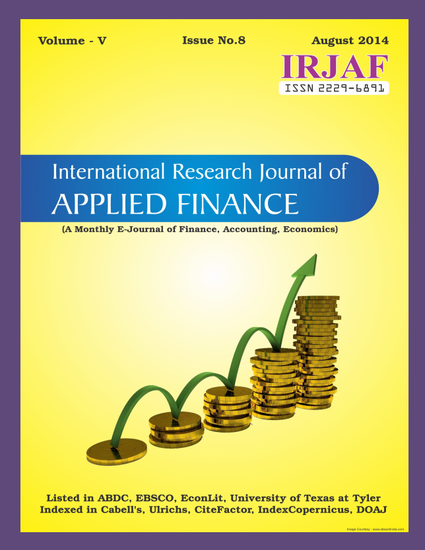
Article
The Effect of Technical Default Cost on Discretionary Accounting Decisions
International Research Journal of Applied Finance
(2014)
Abstract
This study investigates whether the variation in the expected costs of technical default leads managers to manipulate earnings in periods prior to, as well as in, the year in which avoidance of technical default becomes unlikely. We argue that managers have private information about the expected costs and consequences of default and, prior to default, condition their decisions about accounting choice and discretion on these expectations. We provide evidence on the endogeneity of two forms of discretion in accounting choices in the context of testing the debt covenant hypothesis. We document that both forms of earnings management are associated with a lower cost of technical default. Our findings also suggest earnings management is less likely when the expected cost of technical default is low, and such decisions are associated with a lower default cost for firms that actually enter technical default.
Keywords
- accounting choice,
- discretionary accounting,
- earnings management,
- accounting,
- debt,
- technical default
Disciplines
Publication Date
August, 2014
Citation Information
Hassan R. HassabElnaby, Janet Mosebach, Michael Mosebach and Scott Whisenant. "The Effect of Technical Default Cost on Discretionary Accounting Decisions" International Research Journal of Applied Finance Vol. V Iss. 8 (2014) p. 1075 - 1097 ISSN: 22296891 Available at: http://works.bepress.com/janet-mosebach/1/
